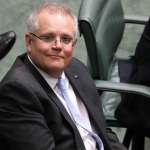“We Must Speak Out”: Lawyers Are Obliged to Speak Out About Human Rights

Lawyers stand in a unique position. Their training and practice gives them a keen awareness of how the law functions in our daily lives, as well as the likely impacts of any newly-enacted or amended laws.
Often, at times when those in the legal profession do speak out on issues of the day, detractors can be heard to remark that lawyers should stick to affairs of the courtroom and leave the politicking to those in office.
But it must be remembered that political change frequently has its origins in the findings of the court. And it’s the arguments of lawyers that steer these rulings. Take the 1992 High Court Mabo decision, it dismantled the legal fiction of terra nullius and led to the rise of native title.
The work of lawyers has never been confined to the courtroom. Mohandas Gandhi was a lawyer, who initially secured legal rights for the Indian population in South Africa, prior to leading his country’s independence movement and pioneering the doctrine of nonviolent civil disobedience.
So, in these dark times, when the “quiet Australians” have caught a populist wave with the Trumpians and the Brexiteers, it seems that right now it’s vital for lawyers to speak out against circumstances where people’s human rights are being trodden upon.
Duty-Bound
“The legal community is one of the best placed sectors to champion human rights and defend the rule of law,” Australian Lawyers for Human Rights (ALHR) president Kerry Weste told Sydney Criminal Lawyers.
“As lawyers we are uniquely equipped to understand the consequences of measures that undermine these essential pillars of a healthy democracy,” she continued. “In that sense, we have a duty to our clients and the community to stand up for human rights.”
And Ms Weste practises what she preaches. In February, she was on the record stating that the Morrison government’s reopening of Christmas Island was an unnecessary “political reaction” to a “humanitarian issue”, while last October, she spoke out about this state’s “archaic” abortion laws.
On the newly-elected Morrison government, Ms Weste said ALHR “looks forward to engaging positively” with it. And she assured that the lawyers’ association plans to hold the government to account, “when it fails to live up to its international human rights law obligations.”
A chilling effect
“As lawyers we must be particularly alive to trends in law-making that reduce the oversight of courts, impinge on judicial discretion and threaten the separation of powers,” the ALHR president made clear. She emphasised that these principles are essential in protecting human rights.
But, six years of Coalition government legislating, along with the prospect of three more to come, have made some a little road-weary. But, Weste stressed, “We must speak out,” as these last years have seen “excessive executive powers” becoming “all too routine”.
As an example of the government overstepping the mark, Ms Weste pointed to legislation and policies relating asylum seekers. More than five years on, 850 people are still on Nauru and Manus, detained in our names, in circumstances long condemned as an ongoing violation of rights.
Another example Weste gave of recent laws that “disproportionately threaten to have a chilling impact on civil society and upon the implied constitutional right to free political speech generally” are the foreign interference and espionage laws the Turnbull government passed in June last year.
Section 91.1 of the Criminal Code Act 1995 (Cth) now makes it an offence for a journalist or anyone else to report on anything that harms Australia’s international reputation politically or economically. The crime carries a maximum prison sentence of either 25 years or life, depending on intent.
Both sides of the chamber
But, when it comes to passing laws in the name of national security and counterterrorism that simultaneously erode citizens’ rights, it’s a bipartisan affair. Since 9/11, over 70 pieces of such legislation have been passed at the federal level.
“National security measures have often failed to reflect an appropriate balance between the government’s domestic and international obligations to protect its citizens from terrorism,” Weste said, “and its international obligations to preserve and promote its citizens’ fundamental human rights.”
Another frightening bill that was passed in the name of countering terrorism last December was minister Dutton’s Assistance and Access Bill, which enables government to unlock citizens’ encrypted data via a plethora of doors, whilst it promised not to use the back one.
No rights protections
“Our vigilance can’t just be about reacting to laws that undermine human rights, it also has to be about advocacy for positive changes to create a culture of respect for human rights,” Ms Weste said and underscored that lawyers ought to be alarmed that federal laws don’t protect basic rights.
Australia is the only western democracy that doesn’t have a bill of rights at the federal level. And this enables lawmakers to ride roughshod over citizens’ fundamental freedoms as they legislate for new government powers.
A Human Rights Act would enshrine the rights of all citizens in legislation that would secure all of them and yet emphasis none. Such a bill could also establish a regime where laws were assessed by the judiciary for their compliance with the seven international rights treaties Australia has ratified.
Currently, this country has a water-down system of assessing laws in regard to human rights compliance. This involves a parliamentary oversight committee reviewing legislation, which is made up of the same majority party members, who draft and pass the bills.
Reigniting the rights dialogue
Ms Weste points out that a federal Human Rights Act would provide that the “rights of all Australians are protected from unreasonable, unfair and unwarranted incursions by the executive”, rather than “selectively enshrining” some, as Morrison recommends in regard to religious freedoms.
“Lawyers have a key role to play in advancing the case for a federal Human Rights Act with lawmakers and also in educating the community,” Ms Weste concluded. “After all, this protection is something which is enjoyed by the citizens of every other comparable democratic nation.”







